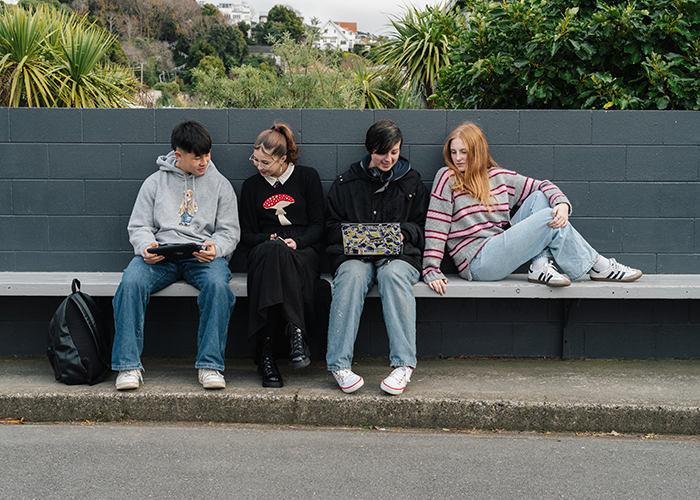
Content that crosses the line: New report highlights young people’s experiences with extreme content online
A new consultation report released today by the Classification Office – Te Mana Whakaatu shows that seeing extreme – and sometimes illegal or banned – content is part of the online experience for young people.
The Classification Office is a regulator with responsibility for classifying content that may need to be restricted or banned under the Films, Videos, and Publications Classification Act 1993. The Office is also charged with conducting research and educating the public about the classification system.
“Chief Censor, Caroline Flora, said the Office wanted to understand what extreme content young people are seeing online, where they’re seeing it, how it affects them, and what support they feel is or isn’t available.
They told us that extreme content, including content that has been classified as objectionable (banned) in New Zealand, can be difficult to avoid, and curiosity is a key driver for engaging with it. Real-world graphic violence was the most common type of content that they mentioned.
The report highlights that many young people feel they’re dealing with these challenges without the guidance and support they need.
“Participants talked about the importance of getting support when dealing with negative experiences online, but they worried about adults’ reactions. The young people we spoke to asked for open conversations and non-judgemental support.” says Flora.
“Beyond the emotional and psychological effects of engaging with objectionable content, there are also legal risks for those who create, share, or possess it,” says Flora.
“The young people we spoke with told us that extreme content causes a range of harms, from shock and disgust through to radicalisation. However, many of them didn’t know that the content could also be illegal and engaging with it could put them or others at risk. It’s our job to raise awareness, not only of the harms that extreme content can create, but about the law that applies in New Zealand.”
The Office is actively involved in local and international efforts to limit the availability of objectionable content. We work with domestic law enforcement agencies, including the Police, DIA, and Customs. The Office’s decisions also contribute to the work of international organisations, including Tech Against Terrorism, the Christchurch Call, and the Canadian Center for Child Protection.
In consultation with clinical psychologist, Dougal Sutherland (Umbrella Wellbeing), the Office has published new resources offering support to parents and whānau on topics such as ‘How do we talk with our kids about seeing harmful content online?’, ‘Algorithms 101’, and ‘Conversation starters about harmful content online’.
“It’s understandable to feel alarmed if you discover that your child has searched for this kind of content. However, it’s important to remember that curiosity is a natural part of growing up. Young people often hear about confronting material online and may search for it without fully understanding the consequences. We’ve worked with the Classification Office to support their resources on how to have safe conversations in these situations. And a key piece of advice for caregivers is to stay calm and listen with a supportive ear, rather than panic,” says clinical psychologist Dougal Sutherland.
Newly released resources are available at https://www.classificationoffice.govt.nz/resources/items/illegal-and-harmful-content-resources-for-supporting-young-people/. Further resources will be released for New Zealand audiences and educators as part of the ongoing work by the Office.
The Classification Office is an independent Crown entity responsible for classifying materials that may need to be restricted or banned under the Films, Videos, and Publications Classification Act 1993. This includes films, books, video games, and online content. The Office also conducts research and produces evidence-based resources to promote media literacy and enable New Zealanders to make informed choices about what they view.
Media enquiries
To arrange an interview with Chief Censor Caroline Flora or with Dougal Sutherland of Umbrella Wellbeing, please contact:
Caitlin Wimsett, Information Unit Manager at Classification Office, info@classificationoffice.govt.nz, 022 526 3156.
Subscribe to our news
Stay up to date with news from the Classification Office.


